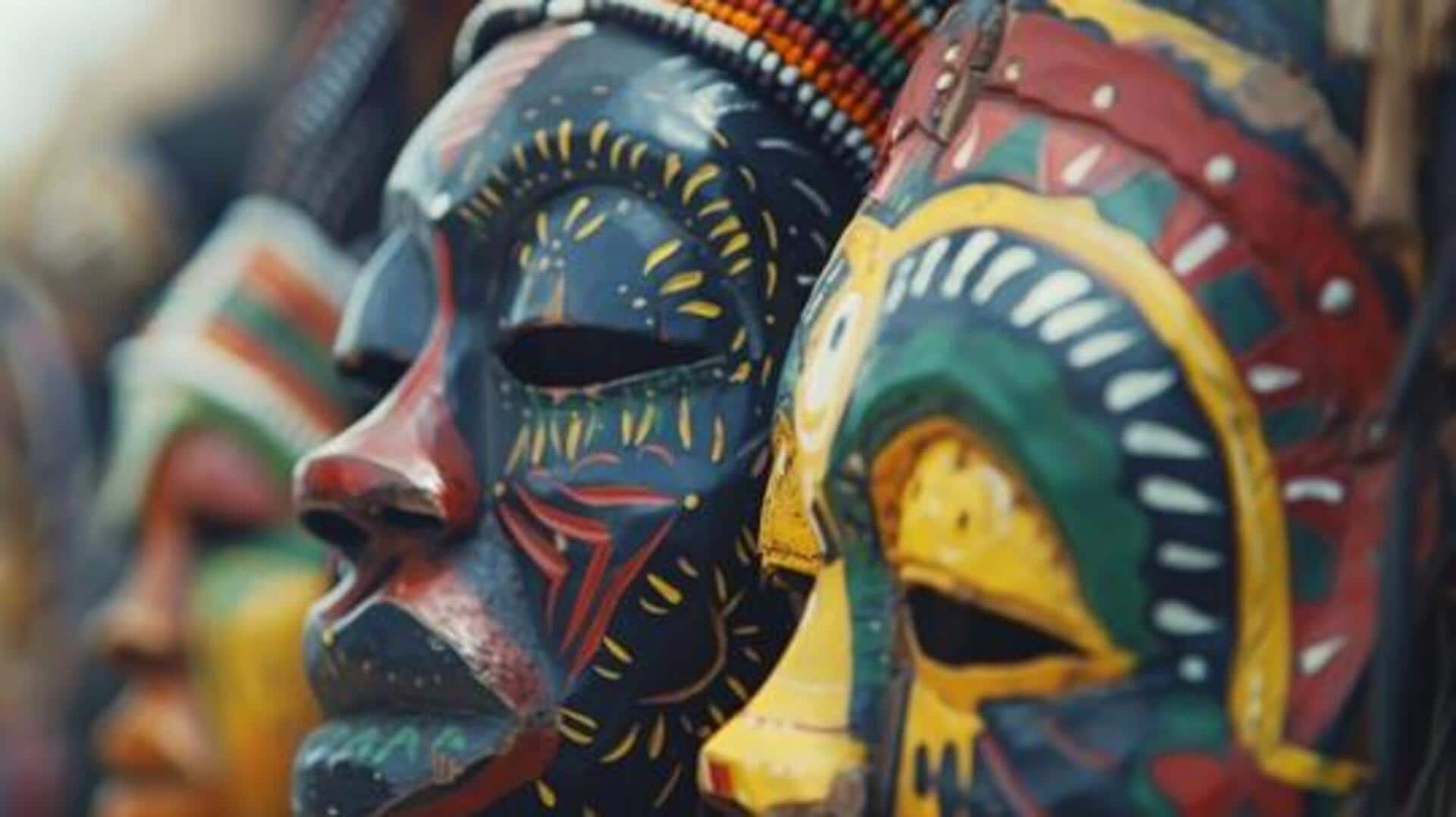
How African mask-wearing rituals tone facial muscles
What's the story
In many African cultures, mask-wearing rituals serve as a cornerstone of traditional ceremonies, and they also provide an unexpected advantage: stronger forehead muscles. These masks, typically made from heavy materials like wood, metal, and fabric, require significant effort to stabilize during dances or rituals. This repeated action strengthens the forehead muscles over time, demonstrating how cultural practices can contribute to facial muscle toning.
Cultural insight
Traditional masks and forehead strength
African masks play a vital role in many cultural celebrations throughout the continent. They are typically crafted from materials such as wood, metal, and fabric, which can be quite heavy. Donning these masks while performing intricate dances or rituals necessitates significant effort from the wearer's forehead muscles to stabilize the mask. This repetitive motion contributes to the development and strengthening of those muscles over time.
Daily practice
Incorporation into daily routine
For those seeking to improve their forehead muscle tone outside of cultural traditions, emulating the weight and balance of African masks can help. By wearing weighted headbands or similar accessories for a few minutes daily, you can replicate the strain these masks exert. Over time, this practice will build forehead strength and endurance.
Holistic approach
Benefits beyond aesthetics
Turns out, working on your forehead muscles through exercises inspired by African mask-wearing rituals isn't just about looking better. It helps tighten the skin and minimizes wrinkles caused by sagging muscles underneath. Plus, it fosters a deeper relationship with your body by turning a mindful exercise into a meaningful cultural experience, providing holistic benefits.
Artistic exploration
Creative expression through mask making
Crafting your own African-inspired mask offers a unique opportunity to engage with the tradition while customizing the weight and balance to suit your specific needs. By utilizing materials such as papier-mache, you can ensure your mask is lightweight and comfortable, with a design that is both personal and functional. This way, it will be easier for you to use it regularly to train and strengthen your forehead muscles.
Social connection
Community engagement and learning
Interacting with knowledgeable African communities that uphold the tradition of mask-wearing allows one to experience firsthand the cultural richness and unexpected benefits of this practice in toning muscles. Attending workshops or events centered on African traditional arts not only deepens one's cultural understanding but also introduces a novel way to improve physical well-being.